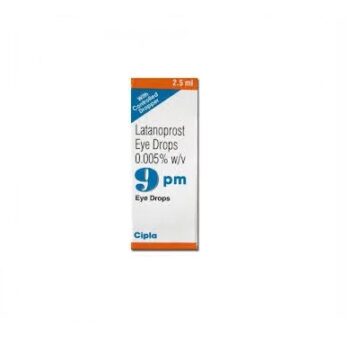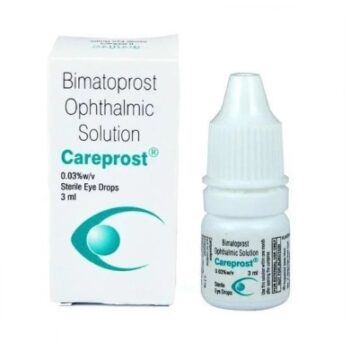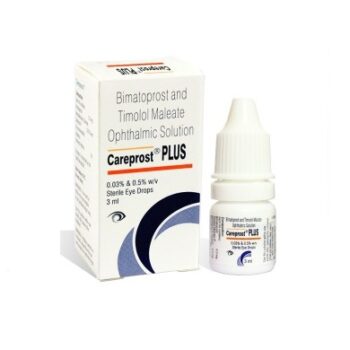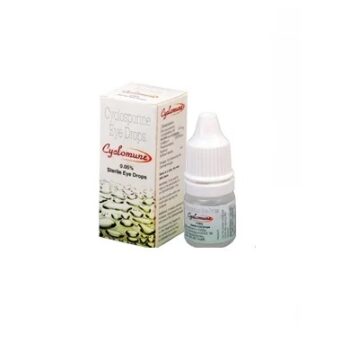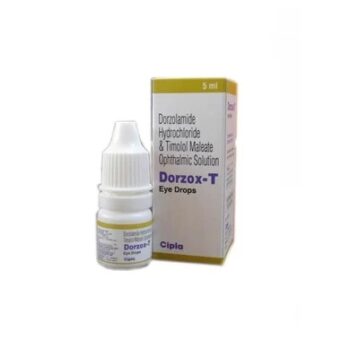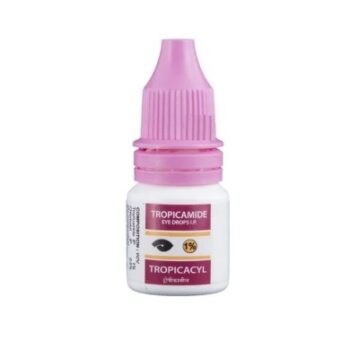Eyecare Medicine
Showing 1–12 of 35 results
Eyecare medicine
Eyecare Medicine is used for diagnosing, treating, and preventing eye diseases. Most such drugs require a prescription. Yet artificial tears and ocular decongestants are there as OTC eye drops. The former lubricates the eye, and the latter reduces redness. Eye drops and ointments are the most common ways of medicating the eye. Other methods include oral tablets or capsules, liquids, local injections, and intravenous.
Need for Eyecare Medicine
The most common therapeutic uses for these drugs are eye infections, glaucoma, allergy, and redness or inflammation of the eye. You can use eye drops for diagnostic purposes. It will dilate the pupils or dye the ocular surface for eye tests. There are anesthetic eye drops that make the eye numb. They are used for a few diagnostic tests or to remove foreign objects from the cornea.
List of eyecare medicine
The medicines here include those that act on the eyes. They are given as ointments or eye drops. There are various types of treatment for eye infections. These are ciprofloxacin, fusidic acid, and chloramphenicol. Drugs such as carbomer and Hypromellose treat dry eyes. Ask your eye specialist for all advice. Glaucoma is due to raised pressure within the eye. Treatments like timolol and latanoprost are commonly recommended.
Side effects
Eye drops can lead to ocular side effects like redness, stinging, light sensitivity, blurred vision, and pupil constriction. A group of anti-inflammatory drugs named corticosteroids may cause glaucoma, eye infections, and cataracts with long-term use. So use these drugs only the way your ophthalmologist suggests. In rare cases, ocular decongestant drops such as Visine and Murine Plus can cause acute glaucoma. If you have a red and painful eye after using these eye drops, immediately contact your doctor.
Continuous use of these eye drops may cause severe damage to the cornea. Sometimes they are prescribed mistakenly after eye trauma. Yet they should not be used for this purpose. Ocular side effects can occur from oral drugs for conditions other than eye diseases.
Side effects on other body parts:
- Some eye drops causes headache.
- Other cause systemic side effects like stomach pain, sweating, and diarrhea.
- Most of them occurring from eye drops are mild. Severe reactions can also occur.
- The beta-blocker agents for the treatment of glaucoma may cause adverse reactions.
- These are slowing of the heart rate, decrease in blood pressure, asthma attacks, memory loss, disorientation, and sex drive loss.
- People with diabetes must use these drugs carefully as they may mask all signs of low blood glucose.
- Eye drops used for dilating the pupils during an eye test may sting.
- Some of these eye drops may cause mouth and skin dryness, a fast pulse, or increased blood pressure or heart rate in some people.
- They may cause more severe side effects like heart attacks or strokes if you have heart disease, high blood pressure, diabetes, or hardening of the arteries.
- Ophthalmologists can avoid these problems by taking a medical and ocular history before an eye test.
- Your doctor must know if you have one of these conditions.

